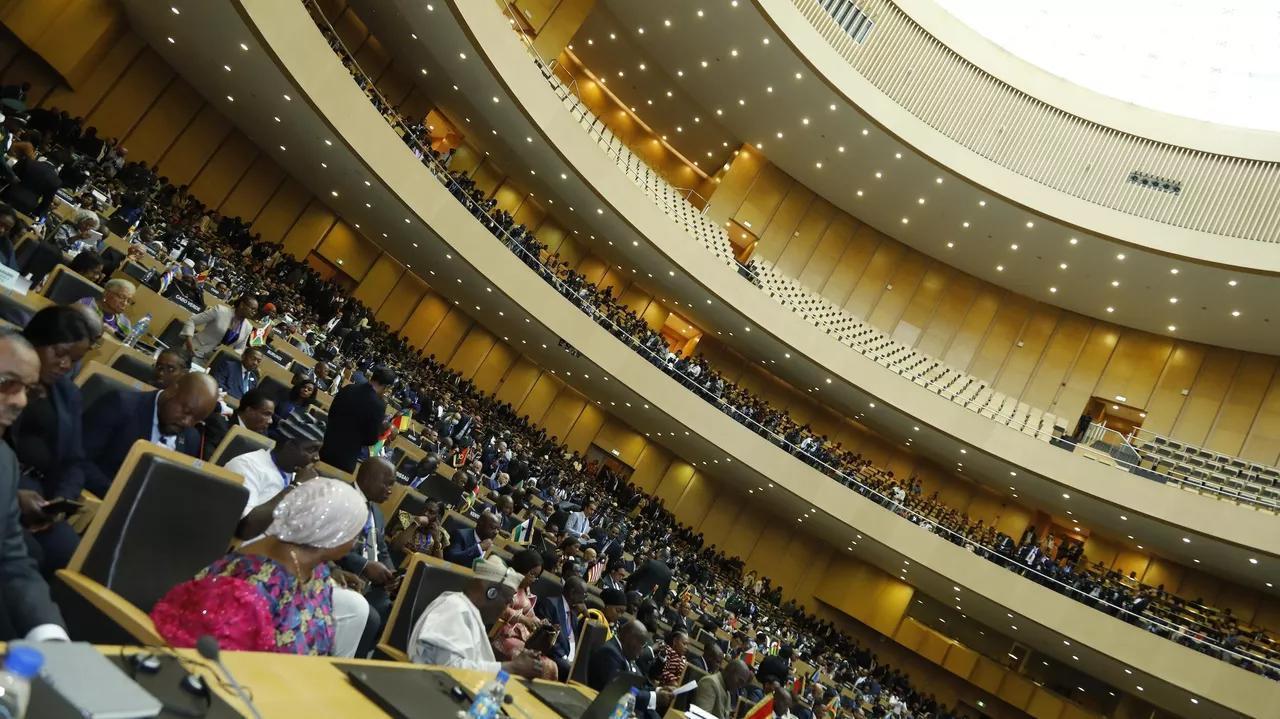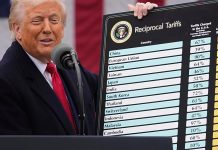Africa-Press – Eritrea. Younger voters are getting more involved in elections and leading protests, even as governments outside Africa are becoming more accepting of authoritarianism. This will be put to the test again in 2025 when Burundi, Cameroon, the Central African Republic, Comoros, Egypt and Togo hold elections.
The rout of ruling parties in Africa in 2024 – driven by spiralling prices and distrust of political elites – reflects a global trend. And there is little sign that it will let up in 2025 unless economic conditions improve markedly.
Youth voters stepped up their role in elections and mobilised on the streets. They scored in Senegal, Botswana and Mauritius, where they helped defeat incumbent parties. Ruling parties in South Africa, Mozambique and Namibia took serious hits in polls as the demographic and political landscape shifted.
From prisoner to Senegal’s president
Starkest of all were the changes in Senegal. A year before the elections, the two leaders of Patriotes Africains du Sénégal pour le Travail, l’Ethique et la Fraternité – Ousmane Sonko and Bassirou Diomaye Faye – were in jail and there were indications that former president Macky Sall would run for a third term.
After young Senegalese demonstrated in the big cities in support of Faye and Sonko, Sall announced he wouldn’t run and named ex-prime minister Amadou Ba as his favoured presidential candidate.
Deemed ineligible, Sonko appointed Faye as his stand-in to run for president in the 24 March election. It was a spectacular defeat for the Benno Bokk Yakaar alliance of Sall and Ba. Released 10 days before the election and with no experience of holding public office, Faye won with 53.9% of the votes on the first ballot. It gave electoral politics a much-needed shot in the arm – in Africa and beyond.
A 44-year-old with the full endorsement of the state institutions had defeated an establishment candidate chosen by the outgoing president. It sends a message to the juntas in Mali and Burkina Faso, which postponed elections set for 2024 and are delaying the transition to civil rule amid signs that they are losing popular support.
L’effet Sénégal also resonated in Côte d’Ivoire and Nigeria, where the legitimacy of ruling-party electoral victories has been energetically questioned by younger activists. This could shape developments in 2025 while Côte d’Ivoire’s President Alassane Ouattara is being urged by some of his allies to run for a fourth presidential term.
Botswana and Mauritius
Fewer pundits predicted the victory of Duma Boko, heading the Umbrella for Democratic Change (UDC), in Botswana in the 30 October election. A younger cohort of voters, frustrated by the lack of jobs and questioning accountability, organised for change.
Boko and the UDC won 36 seats in the 61-seat parliament, trouncing the Botswana Democratic Party (BDP), in power since 1966. The BDP was reduced to a rump of four seats, although it polled around 30% of the votes. Contrary to expectations in some quarters, the outgoing and mercurial president Mokgweetsi Masisi elegantly conceded defeat in a call to Boko within hours of the first results being broadcast.
In Mauritius, there was an even bigger cataclysm for the ruling Alliance Lepep coalition. The opposition Alliance du Changement took 60 of the 66 seats in parliament, leaving Pravind Jugnauth’s Militant Socialist Movement, which had led the alliance, with just two seats.
Like Botswana, Mauritius has been feted as one of the best-run states in the region. The electoral reverses suggest some holes in that governance record, as flagged by organisations such as the Mo Ibrahim Foundation, but also wider questions about whether the current economic model can respond to the more urgent demands it faces.
Somaliland, Somalia, Ethiopia
Localised political allegiances and constitutional issues were to the fore in President Muse Bihi Abdi’s defeat in Somaliland. Protests, some violent, had been spreading ahead of Abdirahman Mohamed Abdullahi’s victory with 64% of the vote on 13 November.
With Somaliland yet to win recognition as a sovereign territory from the AU or the UN, its politics have been infused with nationalism but also a determination to show it is far better run than its neighbour Somalia, from which it broke away in 1991.
Muse Bihi’s repressive reaction to protests undercut his popular standing. His quid pro quo deal – a port in the Arabian Gulf to Ethiopia’s Prime Minister Abiy Ahmed in exchange for recognition of Somaliland’s territorial sovereignty – didn’t turn out to be the hoped-for vote-winner.
Some Somalilanders fear it has ramped up regional tensions for no obvious gains.
The ANC’s historic defeat
The most telegraphed loss of support for a once-dominant party was in South Africa’s elections on 29 May when the African National Congress (ANC) lost its parliamentary majority for the first time since 1994. The ANC’s share of the vote fell to 40.18% compared with 57.5% in 2019, compelling it into negotiations for a coalition government.
Although the rival parties had almost 60% of the vote, they were too ideologically disparate to unite against the ANC in parliament. That opened several options for President Cyril Ramaphosa. He could seek a deal with the populist parties, both ANC breakaways – Julius Malema’s Economic Freedom Fighters (EFF) and Jacob Zuma’s uMkhonto we Sizwe (MK) Party.
The cost would be a commitment to nationalise the central bank, stop commercial companies from taking over some transport and power utilities, as well as speeding up land distribution.
The alternative was a coalition with the centre-right Democratic Alliance (DA), dressed up as a Government of National Unity by including a clutch of smaller parties, such as the Inkatha Freedom Party. Ramaphosa opened negotiations for a business-friendly coalition with the DA after the EFF and MK refused to work with it.
Exceptions to the fallout
The countries that bucked the trend of incumbent party losses in 2024 – such as Chad, Rwanda and Tunisia – have faced tough civil-society critique but little serious diplomatic censure over the political climate and the credibility of their elections.
The two most important indicators may be in Malawi and in Tanzania
From that, it seems that governments and agencies outside Africa are becoming more accepting of authoritarianism than the continent’s activists.
This will be put to the test again in 2025 when a string of authoritarian governments are due to hold elections – including Burundi, Cameroon, the Central African Republic, Comoros, Egypt and Togo. Few expect generosity towards the opposition in any of them.
The two most important indicators may be in Malawi, where the Supreme Court has overturned fraudulent results, and in Tanzania, where President Samia Suluhu Hassan had been leading incremental political reforms, but with a growing challenge to the ruling Chama Cha Mapinduzi, some die-hard securocrats are fighting back hard.
The Africa Report
For More News And Analysis About Eritrea Follow Africa-Press







